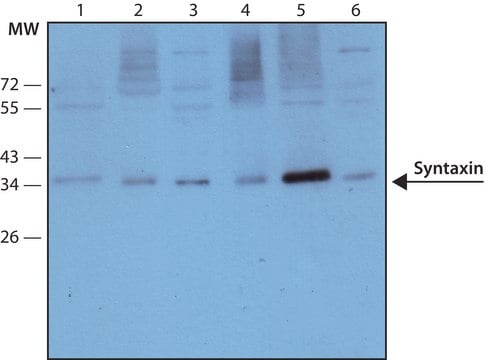Clone 15 HL-60
98052918, human unknown/unspecified, Lymphoblastoid
Se connecterpour consulter vos tarifs contractuels et ceux de votre entreprise/organisme
About This Item
Code UNSPSC :
41106514
Produits recommandés
product name
Clone 15 HL-60, 98052918
Source biologique
human unknown/unspecified
Mode de croissance
Suspension
Caryotype
Not specified
Morphologie
Lymphoblastoid
Produits
Not specified
Récepteurs
IL-5
Technique(s)
cell culture | mammalian: suitable
Maladie(s) pertinente(s)
cancer
Conditions d'expédition
dry ice
Température de stockage
−196°C
Catégories apparentées
Origine de la lignée cellulaire
Human caucasian promyelocytic leukaemia
Description de la lignée cellulaire
The clone 15 HL-60 has been derived from HL-60 cells (Sigma Catalogue number. 98070106) that had been cultured at an elevated pH of 7.6 - 7.8 for 2 months. Clone 15 HL-60 was picked from soft agar being selected for the ability to differentiate to eosinophils after treatment with butyric acid. Although 80% of the cells will exhibit this differentiation pattern initially, reversion will occur during culture leading to a higher percentage reverting to neutrophilic differentiation. Expression of IL-5 receptors and eosinophil granule proteins has been found (eosinophil major basic protein (MBP), eosinophil peroxidase (EPO), eosinophilotactions protein (ECP) and eosinophil derived neurotoxin (EDN). In addition, chemotaxis to eosinophil specific eosinophilotactius has been described.
Application
Leukemia studies, oncogene expression, differentiation assays
Milieu de culture
RPMI 1640 + 2mM Glutamine + 10% Foetal Bovine Serum (FBS).
Procédure de repiquage
Maintain cultures between 3-9 x 100,000 cells per ml; 5% CO2; 37°C. Immediately after resuscitation use medium with 20% foetal bovine serum (FBS) to aid establishment of growing culture. Reduce FBS concentration to 10% once cells are well established in
Autres remarques
Additional freight & handling charges may be applicable for Asia-Pacific shipments. Please check with your local Customer Service representative for more information.
Certificats d'analyse (COA)
Recherchez un Certificats d'analyse (COA) en saisissant le numéro de lot du produit. Les numéros de lot figurent sur l'étiquette du produit après les mots "Lot" ou "Batch".
Déjà en possession de ce produit ?
Retrouvez la documentation relative aux produits que vous avez récemment achetés dans la Bibliothèque de documents.
Notre équipe de scientifiques dispose d'une expérience dans tous les secteurs de la recherche, notamment en sciences de la vie, science des matériaux, synthèse chimique, chromatographie, analyse et dans de nombreux autres domaines..
Contacter notre Service technique





